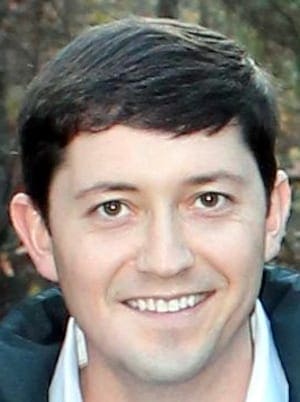We celebrated the “peace” Sunday of Advent last weekend.
On Wednesday afternoon, I was working on my Sunday message as I heard the news about the murders in San Bernardino, California.
I’d been thinking, praying and writing about peace. I’d been dwelling on, wrestling with and reading Scripture about how the peace that God offers at Christmas is different than the peace the world offers.
Those were my thoughts as I took a break, checked the news and discovered the panic of another mass shooting in progress.
It was jarring – the juxtaposition of where my mind had been with the news on the screen was upsetting.
Sixteen people died Wednesday in a senseless act of violence. So now the question is, “What do we do?”
In the aftermath of every shooting, political and religious leaders offer thoughts and prayers and encourage us to do the same. And so we pray and think, but what do we do?
Some call for action to reduce gun violence, suggesting changes in gun laws that they think will help.
Others argue that more people be free to carry guns so that when someone attacks, potential victims will be better prepared for a shootout.
Still others call for stricter sentencing, more pervasive government surveillance and increased mental health programs.
Our responses can be as varied as our experiences and upbringings.
But when I ask, “What do we do?” I don’t mean what do we want the politicians to do. American Christians will never agree on that. But we should be able to agree on something, shouldn’t we?
So forget the politicians for now. Christian political engagement is no substitute for personal, individual action.
So forget for a second our efforts to lobby the state. When I ask, “What do we do?” I mean what do we as Christians do? What do we as the church do?
I’ve seen Christians on social media responding to the latest tragedy with hate-filled invective toward Muslims. That’s not a Christian response.
In fact, Christ’s harshest responses in Scripture are aimed at those within the faith who shut the doors of the kingdom on those beyond the fold (see Matthew 23).
So what should Christians do? How do we demonstrate a path to peace in a world of violence? How do we demonstrate hope for the growing presence of God’s justice and righteousness this Advent? How do we demonstrate love amid hate?
I confess that I don’t know what the answer is yet. But I do know this: The answer is more than matching hatred with hatred.
It’s more than matching violence with violence. It’s more than engaging in an escalating show of power and force. It’s more than prayers that lack the courage of action. The church of Jesus Christ is more than that. It’s better than that.
As Christians, we have a responsibility to shape our culture, but before we can challenge our culture, we must be willing to challenge ourselves.
And maybe the challenge for us isn’t all that complicated. Maybe the challenge for us is simply Jesus.
Maybe the challenge for us in the face of violence is to be people who love our enemies (Matthew 5:43-48). Maybe the challenge for us in the face of violence is to be people who pray for those who attack and persecute (Matthew 5:44).
Maybe the challenge for us in the face of violence is to love all of our neighbors (Mark 12:30-31) and to care for the least of these in our communities (Matthew 25:31-46).
In short, the first challenge is for the church to be the church, for Christians to actually represent Christ – not only in prayer, not even just in political advocacy, but also in individual action.
A statement widely attributed to Pope Francis provides guidance. “You pray for the hungry. Then you feed them. That’s how prayer works.”
So we pray for peace, and then we practice reconciling acts of love that lead to peace. That’s how prayer works.
At Christmas, Christians all over the world will celebrate the redefinition of justice and righteousness and peace through a baby in a manger.
That new kind of justice and new kind of peace only work in this world if those same Christians commit to doing what that baby asks us to: Love one another (John 13:34-35).
 Matt Sapp is the pastor of Heritage Baptist Fellowship in Canton, Georgia. A version of this article first appeared on Heritage’s blog and is used with permission. You can follow him on Twitter @MattPSapp.
Matt Sapp is the pastor of Heritage Baptist Fellowship in Canton, Georgia. A version of this article first appeared on Heritage’s blog and is used with permission. You can follow him on Twitter @MattPSapp.
Matt Sapp is pastor of Central Baptist Church in Newnan, Georgia.

